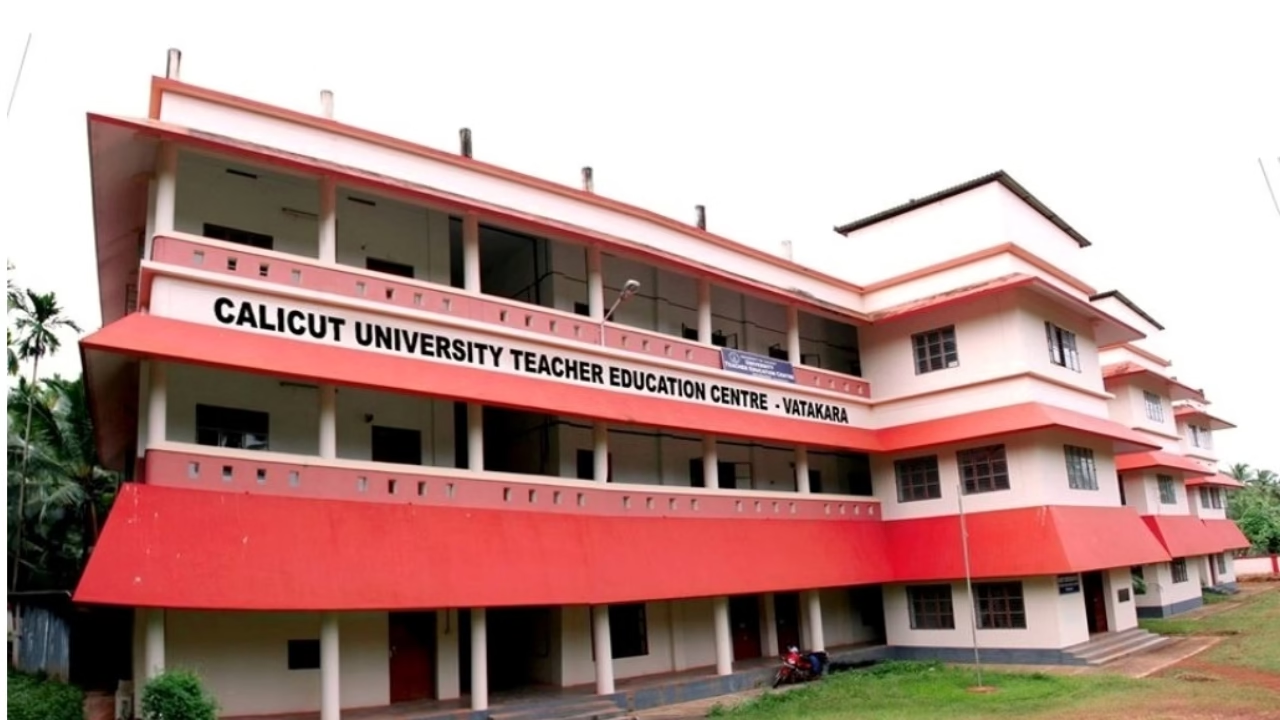Calicut University new course approval 2025 process is facing a major setback, and the reason may not be what you expect. The much-anticipated approvals for new academic courses and colleges under Calicut University might get delayed due to the upcoming Nilambur by-election, creating confusion and worry among students and institutions alike.
This delay could impact thousands of students waiting to join modern courses like BSc Artificial Intelligence, BCA, and Cyber Forensics in the 2025 academic year.
Contents
What’s the Current Situation?
Calicut University has received applications for 155 new courses and two new colleges spread across five districts. These applications are essential for colleges to offer new-age, job-ready programs in tech and science.
However, as of now, these applications are still under review by the District Level Inspection Committee (DLIC). The next crucial step is to present these reports to the University Syndicate for a No Objection Certificate (NOC), which is a key requirement before the government can give final administrative approval.
The syndicate meeting is scheduled for May 29, but here comes the twist—the timing clashes with the announcement of the Nilambur by-election.
How Elections Are Affecting the Approval?
The Nilambur by-election announcement has put a question mark over the approval process. Due to the model code of conduct, which comes into effect during elections, the university may not be allowed to finalize any major administrative decisions without special permission from the Election Commission.
This could severely affect applications from the Malappuram district, one of the key regions in this approval cycle.
In fact, Syndicate member T.J. Martin has officially requested the Vice Chancellor to seek special clearance from the Election Commission to avoid this delay. According to him, if the university waits until after the election, thousands of students may lose out on higher education opportunities this year.
Missed Deadlines and Delayed Action
Adding to the complications, there’s already been a delay in the application verification process. Colleges had to submit their course applications by:
- October 31, 2024 (without fine)
- December 31, 2024 (with fine)
If the College Development Council (CDC) had forwarded these applications to the DLICs on time, the inspection and verification could have been finished by March 2025. Instead, most DLICs only received the applications in April, leading to late inspections.
This pushed the timeline too close to the election schedule, adding another layer of difficulty.
Also Read – What Are BS7 Emission Norms? Big Changes Coming for Cars, SUVs & EVs in India
As per the new academic calendar, classes are supposed to start on June 2, 2025. If the syndicate doesn’t approve the applications by May 29, the entire academic schedule could go off track.
Moreover, colleges cannot get government approval to start courses unless they receive a NOC from the syndicate. Even after the NOC, courses can only begin when affiliation is granted by either the Syndicate or the Vice Chancellor.
A Blow to Higher Education Reforms?
The timing couldn’t be worse. The Kerala government is currently working on new plans to modernize higher education. One key goal is to stop the brain drain—students leaving India to pursue advanced tech courses abroad.
Most of the 155 proposed courses are advanced science and technology programs aimed at offering students better career prospects and international-level education locally.
Delaying their approval could undermine government efforts and create frustration among students who had pinned their hopes on these new offerings.
Students and Colleges Left Waiting
Colleges are left in a difficult position. They’ve already invested time and resources into planning for these new courses. Some have even started informal admissions and outreach, hoping that approvals would come through on time.
Students, too, are stuck in a state of confusion. With counseling and admission season around the corner, many are unsure whether to wait or look elsewhere for other options.
This delay could result in a mass exodus to private universities or institutions in other states where admissions have already begun. For students from smaller towns and middle-income families, this may not be a feasible option.
Calicut University’s Recent Controversy Adds to the Pressure
To make matters worse, Calicut University is already under scrutiny after the Kerala High Court exposed reservation violations in teaching staff appointments from 2021. Around 80 appointments were found to have ignored the legally mandated reservation norms.
This legal trouble has hurt the university’s image, and another controversy around delayed course approvals could further damage its reputation.
What’s Next?
All eyes are now on the May 29 syndicate meeting. If the Election Commission grants special permission, the process may still move forward in time to start the academic year smoothly.
However, if permission is denied, students and colleges will be forced to wait, possibly pushing the new courses to a later intake or scrapping them entirely for 2025.
The Calicut University new course approval 2025 delay highlights a serious problem—administrative delays and election timings clashing with academic deadlines. While elections are crucial to democracy, education is the future of the next generation.
It’s high time that decision-makers create clear exceptions or faster processes for education-related matters, especially when it involves thousands of young lives.
Until then, students, parents, and institutions across five districts wait in anxiety, hoping that May 29 brings a green signal and not another delay.

